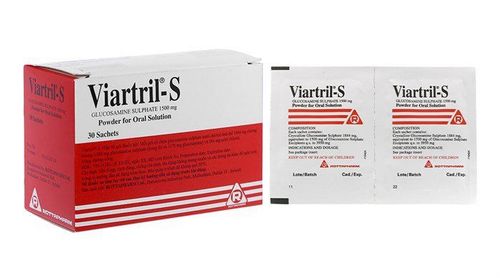During pregnancy, the body's need for calcium increases significantly. So, how much calcium do pregnant women need each day? Proper and adequate calcium supplementation helps pregnant women avoid conditions like osteoporosis.
1. Why do pregnant women need calcium supplementation?
Typically, calcium deficiency can cause muscle pain, osteoporosis, joint pain, and back pain, especially in pregnant women. Calcium deficiency during pregnancy affects both the mother and the fetus. Common symptoms include cramps, hypocalcemia, high blood pressure, back pain, and in severe cases, seizures. For the fetus, it can lead to congenital rickets, short stature, and bone deformities.
So, how much calcium do pregnant women need each day? This depends on the stage of pregnancy:
- First trimester: about 800mg of calcium
- Second trimester: 1,000mg of calcium
- Third trimester and breastfeeding: 1,500mg of calcium
If the necessary amount of calcium is not supplemented during pregnancy, it can affect the bones of both the mother and the fetus. This condition is most common in the third trimester, accounting for 80%.
Therefore, adequate calcium supplementation is essential to support the baby's development, form and develop healthy bones, aid in breast milk production after birth, and reduce the risk of preeclampsia during pregnancy.
2. What are the consequences of calcium deficiency in pregnant women?
During pregnancy, about 30g of calcium is transferred from the mother's body to the fetus. Therefore, adequate and correct calcium supplementation is crucial.
Calcium deficiency in pregnant women can lead to several consequences:
- High blood pressure: According to experimental and clinical results, pregnant women should start taking 2g of calcium daily from the 15th week of pregnancy and reduce to 1g after the 24th week. Maintaining this can help keep blood pressure lower than average throughout pregnancy, minimizing the risk of pregnancy-induced hypertension.
- Reduced blood calcium levels: In the later stages of pregnancy, the need for calcium for fetal bone development increases. The umbilical cord secretes estrogen, which hinders the reabsorption of calcium in the mother's bones, affecting both the mother and the fetus.
- High parathyroid hormone levels: When the mother's blood calcium levels decrease, the secretion of parathyroid hormone increases. This hormone causes phosphorus in the bones to dissolve, increasing calcium absorption in the intestines to maintain blood calcium levels. High parathyroid hormone levels lead to increased blood pressure.
Therefore, adequate calcium supplementation throughout pregnancy can reduce parathyroid hormone secretion, lower blood pressure, and maintain stability.
3. How much calcium is needed during pregnancy in each trimester?
Although calcium supplementation during pregnancy is crucial, arbitrary supplementation without a doctor's prescription can be counterproductive and affect both the mother and the baby. Here are the important stages you need to know:
- First trimester: During this period, you need about 50mg of calcium daily. Thus, in the first trimester, pregnant women need about 800mg of calcium. You can drink 1-2 glasses of milk daily to meet the body's calcium needs.
- Second trimester: During this stage, you need more calcium than in the first trimester. Calcium supplementation should not be delayed beyond 20 weeks of pregnancy, as this is the period of fetal bone development. In the second trimester, pregnant women need about 1200mg of calcium.
- Third trimester: In the third trimester, the fetal bones begin to stabilize. During this time, you need 600mg - 1500mg of calcium daily. This ensures the comprehensive development of both the mother and the fetus.
Therefore, to know how much calcium pregnant women need each day and how to supplement it properly, detailed guidance from a doctor is necessary. Additionally, you can supplement calcium from foods or sunbathe in the morning to promote vitamin D synthesis and increase calcium absorption. Light exercise is also recommended to enhance bone and joint activity and improve bone condition.
4. How to supplement calcium for pregnant women?
4.1. Calcium-rich foods Daily foods that are rich in calcium include:
- Dairy products: Cheese, yogurt, cow's milk, goat's milk, etc. If you are concerned about gaining weight during pregnancy, you can choose low-fat milk. Low-fat milk contains 2% more calcium than whole milk.
- Beef: Contains a lot of calcium and iron.
- Chicken eggs, duck eggs.
- Seafood: Shrimp, crab, lobster, clams, mussels, snails, etc.
- Green vegetables: Broccoli, kale, spinach, amaranth, etc., contain a lot of calcium and relatively high minerals. However, the calcium in green vegetables is not as easily absorbed as in milk.
- Legume products: Soybeans, green beans, peas, mung beans, etc., are very rich in calcium. According to statistics, 110g of soybeans contains 400mg of calcium and is more easily absorbed by the body than milk.
4.2. Calcium supplements In cases where women have low calcium levels, calcium supplementation before and after childbirth is crucial. This helps prevent preeclampsia in pregnant women and those with a history of hypertension. Additionally, the amount of calcium needed daily through medication should be guided by a doctor.
- If calcium needs to be supplemented in the form of oral medication, it must be decided by a doctor and closely monitored to ensure the total daily calcium intake does not exceed 3g/day to avoid the risk of excess calcium.
- Do not take calcium and iron simultaneously, as it will limit calcium absorption. Supplement them a few hours apart between meals.
- When using calcium, it is recommended to take it with vitamin D to enhance calcium absorption.
- Calcium supplements are available in capsule, effervescent tablet, and tablet forms, which often cause calcium deposition, leading to kidney stones and bladder stones. Therefore, calcium gluconate is commonly used to avoid calcium deposition.
- Pregnant women should not supplement calcium with foods such as tea, cocoa, coffee, chocolate, etc., as these foods contain oxalate, which reduces calcium absorption.
5. When is the best time for pregnant women to supplement calcium?
When supplementing calcium, pay attention to the following points to maximize calcium absorption:
- It is best to take calcium after a meal or lunch, about 1 hour later.
- Combine calcium with vitamin D and magnesium. Take it in the morning, as sunlight helps absorb calcium more effectively.
- Do not take calcium in the evening, as it can cause kidney stones and difficulty sleeping.
- Divide the daily calcium intake into smaller doses to enhance absorption.
- Do not take calcium with iron, zinc, or multivitamins. If taken together, they should be at least 2 hours apart.
6. Important notes when supplementing calcium during pregnancy
Here are some important notes for properly supplementing calcium for pregnant women:
- Avoid carbonated drinks, soft drinks, coffee, and foods containing high levels of phosphoric acid. These substances are not only harmful to the body but also promote calcium excretion.
- Do not eat too much salt: Excessive salt intake during pregnancy affects calcium absorption and increases calcium loss through excretion.
- Limit high-fat foods, as high-fat content causes calcium deficiency. Fatty acids in these foods reduce calcium absorption in the body.
- Some foods containing phytic acid, such as unfermented flour, pickled bamboo shoots, soybeans, and onions, can significantly affect calcium absorption.
The above article shares some information about how much calcium pregnant women need each day. Hopefully, the information provided will help you gain more knowledge before and after pregnancy, allowing you to supplement the necessary amount of calcium correctly and adequately according to each stage of the cycle.
To arrange an appointment, please call HOTLINE or make your reservation directly HERE. You may also download the MyVinmec app to schedule appointments faster and manage your reservations more conveniently.













